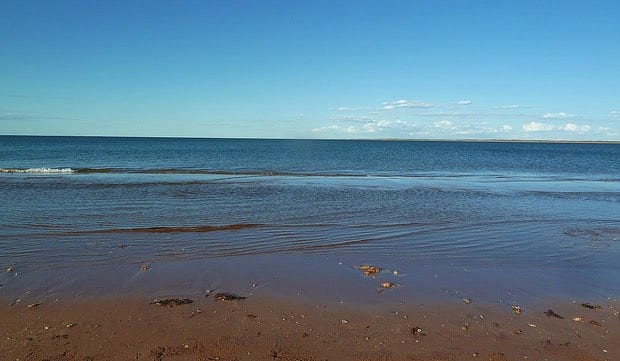In the midst of a senate inquiry into its governance and operation and facing a barrage of criticism for being a slush fund to finance Adani’s Carmichael mine, the Northern Australia Infrastructure Facility, NAIF, announced its first loan in October 2017.
It is a taxpayer funded subsidy to the oil and gas industry in the North West Shelf of Western Australia in the form of support for the Onslow Marine Support Base.
The project is related to a port development in Onslow which will allow large ships from the oil and gas projects to be serviced. However, NAIF is only funding Stage 2, which is ‘capital dredging’.
The Australian Conservation Foundation has obtained reasons for NAIF’s decision. Our analysis is based on those reasons.
Climate risk as a material risk
NAIF’s board considered climate risk as a material risk to financing the Onslow project. Normally such risks are embedded in a bank’s risk management framework, which are described in their annual reports.
NAIF does not refer to climate risk in the public description of its risk management framework, nor its annual report. Thus NAIF operates in an opaque manner not aligned with best practice. NAIF should answer the following questions.
- How does it define ‘material’?
- Does ‘climate risk’ mean ‘climate change risk’? Does NAIF accept climate change science?
- Does NAIF assess whether climate risk is a material risk for all projects, or for a class of projects, such as infrastructure related to fossil fuel projects?
- APRA Executive Director Geoff Summerhayes has made statements that 2ºC or less is the base case climate change scenario, and scenario analysis is ‘the new normal’. In the Base Case Scenario for the Onslow project does NAIF use a 2ºC global warming scenario, or another higher global warming scenario, or none at all?
- The Onslow Marine Support Base services the oil and gas industry, which contributes to climate change. NAIF financed the Onslow project because private financiers did not want to pay for enhancing public infrastructure (Reasons, p 8). That enhancement was to allow bigger ships into Onslow’s public wharf during cyclones (Environmental Review Document, p 6). Cyclone and extreme weather events are exacerbated and are becoming more frequent as a result of climate change. How did NAIF treat the fact that it was financing an enhancement in a public asset to protect the public from extreme weather events whilst, at the same time, the project facilitates climate change which exacerbates extreme weather events like cyclones?
Financing a project that would not otherwise have proceeded
As with Adani, there is doubt that a NAIF loan was in fact needed in order for the Onslow project to proceed. This is a Mandatory criterion 3 of NAIF’s Investment Mandate.
The West Australian reported on 21 October 2017 that a representative of the Onslow project said, “I don’t think at one stage did we ever think this is not going to work”.
Public benefit and jobs
NAIF’s CEO told Senate Estimates on 26 October 2017 that the Onslow project it was financing would create in excess of 200 jobs.
“The financial assistance that will be advanced is around $16. 8 million, and the direct economic benefit over the life of the loan will be in excess of $100 million and in excess of 200 jobs. So we’re really excited about that, and the client is extremely excited.” (Page 167 of transcript)
Note the suggestion is ‘direct economic benefit’. It follows that NAIF appears to be talking about ‘direct jobs’.
However, NAIF’s statement of reasons (p 10) said it would create 61 local jobs and 166 jobs ‘during operations’.
NAIF appears to have considered indirect job figures, as the Reasons refer to the broad concept of ‘economic benefits’ (p 10). We query whether NAIF accepts proponents’ figures based on multiplier analysis.
This methodology is otherwise known as ‘input/output’ methodology.
In our view, NAIF’s board cannot credibly consider indirect jobs figures based on multiplier analysis given the Productivity Commission says that methodology is ‘flawed and misleading’ (p 55 Trade & Assistance Review 2013/14). NAIF should undertake not to consider multiplier analysis in the future.
Compliance risk
NAIF is financing Stage 2 of the Onslow Marine Support Base – Capital Dredging. It is a dredging project, ie. removing sand. It does not appear to involve the construction of infrastructure, such as a wharf, which NAIF refers to at p 2 of the Reasons.
How does NAIF justify its involvement given its mandate is to provide grants of financial assistance for the construction of economic infrastructure? NAIF Act s 3(1).
NAIF will likely argue that enhancement of existing infrastructure is permitted (Presentation, p 7).
However, there is nothing in the NAIF Act to suggest that interpretation is permitted. Funding the Onslow Marine Support Base appears to be evidence of mandate creep.
David Barnden is an analyst and lawyer with Environmental Justice Australia.











